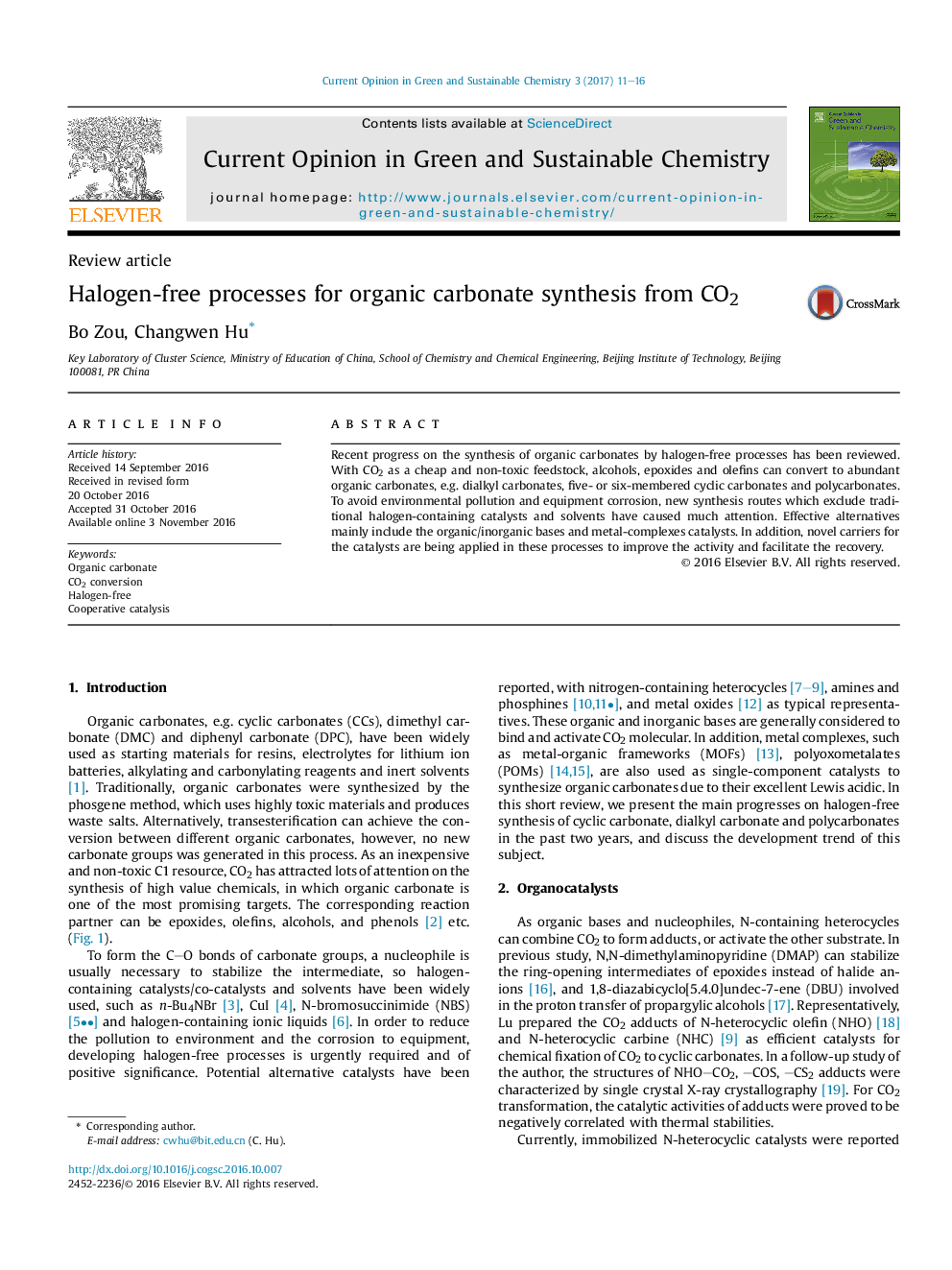| Article ID | Journal | Published Year | Pages | File Type |
|---|---|---|---|---|
| 5143442 | Current Opinion in Green and Sustainable Chemistry | 2017 | 6 Pages |
Abstract
Recent progress on the synthesis of organic carbonates by halogen-free processes has been reviewed. With CO2 as a cheap and non-toxic feedstock, alcohols, epoxides and olefins can convert to abundant organic carbonates, e.g. dialkyl carbonates, five- or six-membered cyclic carbonates and polycarbonates. To avoid environmental pollution and equipment corrosion, new synthesis routes which exclude traditional halogen-containing catalysts and solvents have caused much attention. Effective alternatives mainly include the organic/inorganic bases and metal-complexes catalysts. In addition, novel carriers for the catalysts are being applied in these processes to improve the activity and facilitate the recovery.
Related Topics
Physical Sciences and Engineering
Chemical Engineering
Catalysis
Authors
Bo Zou, Changwen Hu,
